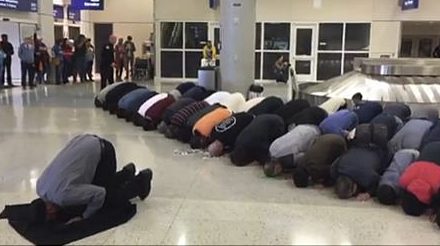Strange times for marriage, huh?
- Two cases regarding the legal recognition of gay marriage are before the Supreme Court.
- Princeton alumna Susan Patton told women at Princeton to spend their time finding a mate. While some were outraged, most saw it as a candid (perhaps too candid) admission that marriage is about securing economic status and marriage to an ivy leaguer furthers this end.
- Cohabitation is the new normal. “By the time they’re 20, 1 in 4 women ages 15 to 44 in the U.S. have lived with a man, and by the time they’re 30, that ratio climbs to 3 in 4.”
- Recently, Diane Rehms discussed the frequency of sexual assaults at college and universities. Sadly, the story merely reflects the high levels of violence that perpetually affect women, often from their own spouses or boyfriends.
- Only a little more than 50% of marriages make it their 20th Anniversary.
Whatever your thoughts on these issues, they all arise from some basic realities about love and marriage.
Gay marriage? Human beings cannot help but make invisible things visible. We have an impulse to make our outer lives conform with our inner lives, probably no where more so than with love. We want to proclaim love publicly. We want to make it known, ratify it, seal it, and legalize it.
Marriage as social status? While marriage is a personal commitment, we should not fool ourselves into thinking that that is all it is. Economics is a constitutive part of marriage, and this should not surprise us given that the root meaning of economics is “management of the household.” Couples cannot avoid negotiating housing, cars, food, and bills. In fact, economics is one of the determinative aspects of marriage. In his Thinking, Fast and Slow, Daniel Kahneman argues that marital success typically follows a simple formula. If the frequency of sex is greater than the frequency of fights about finances, the marriage will most likely endure.
Cohabition? The reason couples often move in together is to see if they can negotiate shared living space. It is a realization that going out in social settings differs from the daily interactions of living under the same roof. The latter requires a kind of practical knowledge only gained by experience. Whose preparing dinner and cleaning up? How do you load the dishwasher? How do you manage laundry? Clean the bathroom? How do you divide up these tasks? How do you share them? So much of marriage is made up of these very practical decisions.
Violence? While violence as a response to conflict is an abject failure, one that destroys people, marriage does entail conflict. In Why Marriages Succeed or Fail, John Gottman indicates that negotiating conflict is essential if a marriage is going to succeed. According to Gottman, couples must address conflicts but they must a) do so in a context of overwhelming compassion (every conflict must be counterbalanced by at least five positive interactions), and b) employ strategies to foster reasoned communication and constructive resolutions about the conflict.
Only 50% of people make it to their 20th anniversary? Yes, marriage is a personal relationship, but it also is public and political. It requires financial management, practical wisdom, and effective skills at conflict resolution. Given this challenge, we should be aware that all marriages struggle to succeed and have great sympathy for those marriages that break down.
When the Catholic Church talks about marriage as a sacrament, it talks about all these aspects of the reality of marriage (see the Catechism of the Catholic Church and chapter five of the Compendium of the Social Doctrine of the Church). As a means of God’s grace though, the sacrament of marriage is meant to go beyond them, build upon them, and bring them to their perfection and fulfillment. What does the Church’s teaching have to add to these public discussions? These discussions focus on issues surrounding couples and neglect the extended networks of relationships in which all of these relationships are embedded. Couples have children or adopt children. Couples who do not have children often put themselves at the service of their friends and neighbors. In today’s economy, couples welcome back home children returning from college, and grown children welcome into their own homes their elderly parents. As David McCarthy notes in Sex and Love in the Home, marriages often entail an open household, where friends, families, neighbors, and strangers are often welcomed. This is the “perfection and fulfillment” to which the sacrament of marriage points. It orients the love of the couple—a love that is public, economic, prudent, and conflict resolving—to the love of others.




Perhaps it is time for the church to stop collaborating with the state regarding marriage. Many countries in the world have a two step process for marriage. There is the “civil union” that provides for the legal aspects of a marriage contract and then, if the couple chooses, a religious ceremony. De-coupling the two steps would seem to be a reasonable solution in today’s world. Two people who choose to take on legal responsibilities for one another should not be such a threat to the Sacrament of Matrimony – which is really a separate situation.
When one helps others prepare for weddings in a church it is clear that the Presider is simultaneously acting for the State (the civil union) with its set of papers and requirements and the Religious bond which has another set. Separate the two events – let everyone get a civil union first.
Then if we increase the sacramental preparation and engage in follow up with couples married in the church, perhaps Matrimony will become the lasting covenant it is meant to be.